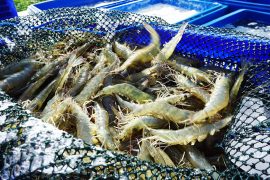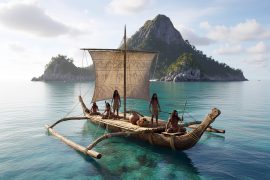
Caribou rebound thanks to efforts of Indigenous Peoples
Despite recovery efforts from both federal and provincial governments, Canada’s caribou populations continue to decline, largely due to human activity. However, a new study led by the University of British Columbia (UBC) Okanagan has found that a herd of mountain caribou from central British Columbia – the Klinse-Za – is currently rebounding, with their numbers nearly tripling in the last decade.
According to the researchers, this happens due to a conservation initiative led by Indigenous Peoples that pairs short-term recovery actions such as predator reduction and caribou guardians at maternal pens with an ongoing effort to secure landscape-level protection in order to create a self-sustaining caribou population.
“We have an Indigenous-led conservation effort to thank for averting the looming extinction of this herd,” said study lead author Clayton Lamb, a wildlife scientist at UBC. “The population was declining rapidly – a West Moberly Elder once described the herd as a ‘sea of caribou,’ but by 2013 it had declined to only 38 animals.”
Due to the collaborative efforts led by West Moberly First Nations and Salteau First Nations in partnership with various organizations and governments, this number increased to over 110 by 2022.
“This work provides an innovative, community-led, paradigm shift to conservation in Canada,” said Dr. Lamb. “While Indigenous Peoples have been actively stewarding landscapes for a long time, this approach is new in the level of collaboration among western scientists and Indigenous Peoples to create positive outcomes on the land and put an endangered species on the path to recovery.”
“This work is also an important part of decolonizing the mindset of conservation, which has historically worked to exclude the views of Indigenous Peoples,” added study senior author Adam Ford, a professor of Wildlife Restoration Ecology at UBC.
Although the efforts of Indigenous Peoples have yielded great success, more time and effort will be needed to fully recover the Klinse-Za populations. Nevertheless, this initiative highlights the crucial role of Indigenous governance and leadership in devising meaningful conservation actions, enhancing endangered species recovery, and honoring cultural connections to imperiled wildlife.
The study is published in the journal Ecological Applications.
—
By Andrei Ionescu, Earth.com Staff Writer













